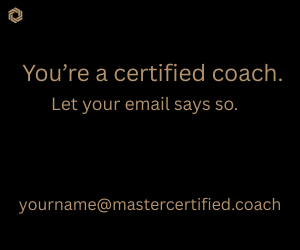Is your team coming to you with problems only? Does your team come to you for every issue they face? Are you disappointed with the level of creativity within your team? Is your team productivity below expectations?
If your answer to any of the above questions was yes, then you need to start coaching your team.
Many leadership qualities help businesses grow and with coaching, you can improve the performance and productivity of your team, especially in this rapidly changing world.
A recent Harvard Business Review article “The Leader as Coach” mentions that “An effective manager and coach asks questions instead of providing answers, supports employees instead of judging them and facilitates their development instead of dictating what has to be done.”
Great leaders know that coaching is not about command and direction, but rather inspiring employees to realize their strengths and find their own answers. When coaching is done properly it leads to greater empowerment and a more skilled workforce.
When compared to the “old” ways of leadership, we can see now that leaders who have coaching skills can better support their people and their organization to grow better faster. In this article, I am sharing six ways to become a better coach for your team and people.
1. Be a Better Listener
Stephen Covey once said that people do not listen to understand, they listen to reply. Listening is a difficult skill and leaders as coaches realize the positive impact of good listening skills. We know that employees who feel their voices are heard are happier and more engaged.
Great leaders as coaches are present, patient and understand that employees have different personalities – some will share more openly, while others may need more support to do so.
2. Be Flexible with your Coaching Style
Some employees will need more support and attention than others and great leaders as coaches realize this and adapt – they do not use one coaching style for everyone. Great leaders are flexible and adaptable to all levels of coaching experience from beginner to expert. Emotional intelligence is particularly important here, so leaders with high emotional intelligence will achieve great results when coaching their teams.
3. Praise and Highlight Employees’ Strengths
Focusing on the employees’ weaknesses or on things that are not going smoothly is demotivating and it will not lead to any progress. Acknowledgment and recognition of the things your employees are doing well can be powerful and therefore have a positive impact on their work and improvement.
4. Ask More and Say Less
Open-ended questions lead to more detailed and rich answers, which lead to a successful coaching partnership. It is important to avoid leading questions and direct instructions. Employees grow the most when they figure out the answers themselves.
5. Accept Failure
Robert Kiyosaki once said that failure is part of the process of success. Nobody becomes the best at something without failing and making some mistakes along the way. Leaders as coaches support their team to learn from their mistakes so that they can build on them for a better career and future.
6. Lead by Example
As a leader, commit to continuous learning and improving your skills and competencies. By doing that you will be a great role model for the rest of the team. Remember that your team is watching and your actions will remind them about the new skills and competencies they need to learn to go to the next level.
As a leader, working on your coaching skills will take time and effort. It is like any other skill that you wish to learn – it needs practice and repetition.
In conclusion, remember that coaching skills improve team performance and productivity, boost confidence, and increase empathy and compassion that will lead to less stress and more growth potential.
Disclaimer
The views and opinions expressed in guest posts featured on this blog are those of the author and do not necessarily reflect the opinions and views of the International Coach Federation (ICF). The publication of a guest post on the ICF Blog does not equate to an ICF endorsement or guarantee of the products or services provided by the author.
Additionally, for the purpose of full disclosure and as a disclaimer of liability, this content was possibly generated using the assistance of an AI program. Its contents, either in whole or in part, have been reviewed and revised by a human. Nevertheless, the reader/user is responsible for verifying the information presented and should not rely upon this article or post as providing any specific professional advice or counsel. Its contents are provided “as is,” and ICF makes no representations or warranties as to its accuracy or completeness and to the fullest extent permitted by applicable law specifically disclaims any and all liability for any damages or injuries resulting from use of or reliance thereupon.
Authors
Post Type
Blog
Topic
Coaching Skills for Leaders, Coaching in Organizations
Related Posts
From Check-the-Box to Culture Shift: Becoming a Sustainable Coaching Culture
There’s a quiet revolution happening inside organizations — and it doesn’t roar. It listens. It…
Cultivating Coaching Cultures That Shape Individual Contributors Into Leaders
In my coaching work with organizations, I continue to see a recurring…
Measuring Coaching ROI and the Ripple Effect
A Moment of Realization: When Coaching ROI Becomes Visible “I never envisioned…








